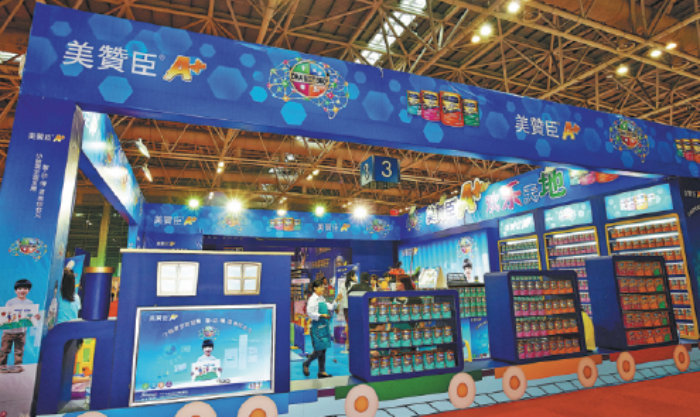Baby formula proves consumers, nations benefit from commerce


The other day, when I was feeding formula milk to my baby, I realized it has been a long time since daigou, or shopping agents overseas who buy goods for consumers in the Chinese mainland, hit headlines.
Some 10 years ago, because of high tariffs, imported baby formula carried higher price tags in the mainland compared with source markets such as New Zealand and Australia. But Chinese consumers bought them anyway as they believed such products offered better quality.
Even a few years ago, when Chinese people traveled overseas, their luggage on return flights was often stuffed with products bought overseas or at airport duty-free shops, either for themselves or to be given away as gifts. Lower prices overseas of top-quality products were a big draw.
Thanks to China's unwavering efforts to open up its markets wider to the rest of the world, Chinese people have benefited greatly from the expansion of the nation's free trade area network and stellar growth in foreign trade.
Customs data showed China's foreign trade reached a record $6.05 trillion last year.
Exports reached 21.73 trillion yuan ($3.42 trillion), up 21.2 percent year-on-year; imports expanded by 21.5 percent to 17.37 trillion yuan.
In 2021, the value of China's trade with each of its five largest trading partners increased. Here's the breakdown: the Association of Southeast Asian Nations (5.67 trillion yuan, up almost 20 percent);the European Union (5.35 trillion yuan, up more than 19 percent); the United States (4.88 trillion yuan, up more than 20 percent); Japan (2.4 trillion yuan, up more than 9 percent); and South Korea (2.34 trillion yuan, up more than 18 percent).
All this benefited Chinese consumers a lot. Buying options grew wider, and prices fell, thanks to reductions in, or even the elimination of, tariffs on a number of products.
Benefits for consumers have been manifold. Competition from imported products encouraged domestic producers to innovate and produce better and competitively priced products.
I can vouch many domestic brands and their wide range of products are now world-class and affordable. Yet, if I still need to buy an imported product, I can tap cross-border e-commerce platforms, which hold promotional sales from time to time.
To be sure, China's trade expansion last year has helped stabilize global industry supply chains and facilitated world economic growth.
As China's domestic market grows, its increasing appetite for imports has helped other countries to resume production and stabilize local economic recovery.
The nation's growing exports, supported by the strong resilience of domestic industry and supply chains, also have helped meet explosive overseas demand amid uncertainties of the COVID-19 pandemic.
This may have also helped tame surges in global prices, thus making great contributions to the world's economic recovery.




































